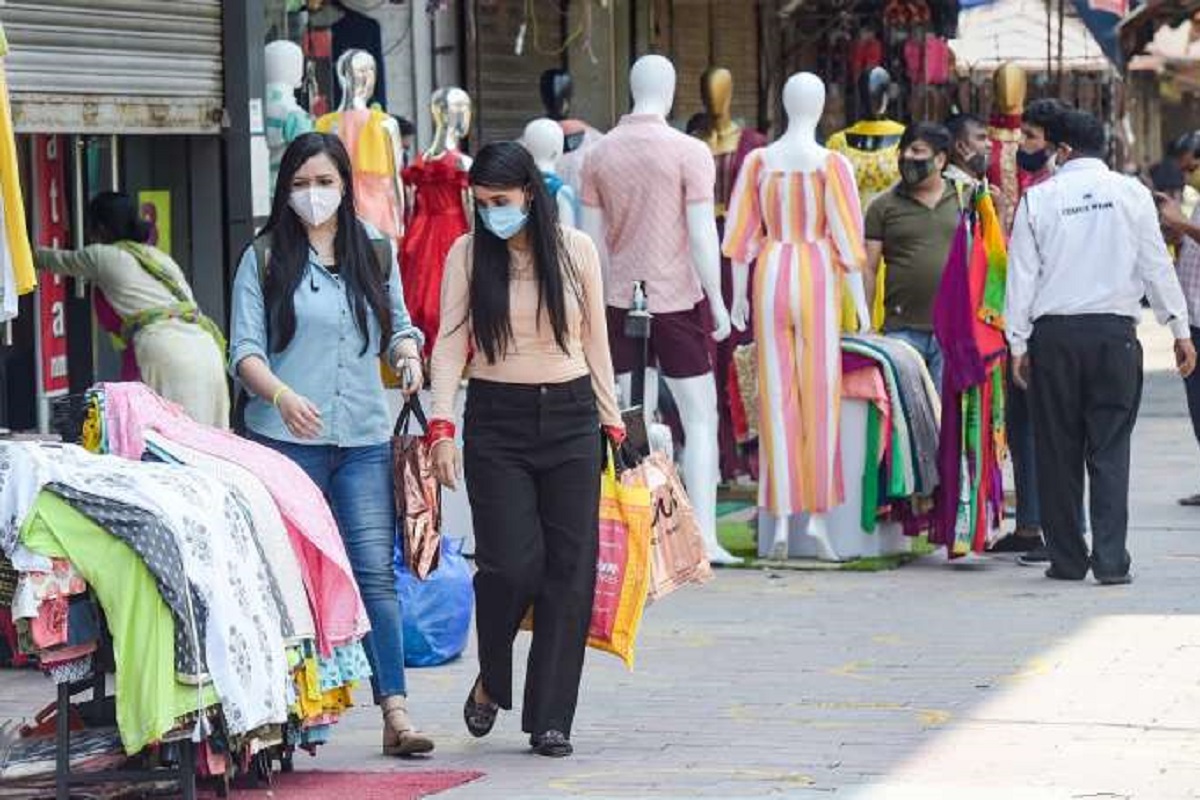Mask, social distancing return in Srinagar as Covid-19 cases rise
Srinagar's district magistrate, Mohammad Aijaz, has ordered that the district and sectoral officers would ensure that officials use a face masks in offices.
Passengers are standing all through the trains.

After a September-full of rains, days have become shorter. The evenings now have a smell that hates “social distancing.” Delhiites are naturally getting together. They are out on the streets, in bazaars and malls. The hot weather and late rains took a heavy toll of bonhomie that is the trademark of big cities. After months of work from home, the city is searching for pleasure outside. If the Metro is an indicator, the days of home-confinement are fully forgotten.
Passengers are standing all through the trains. The platforms too don’t remain empty for more than a few minutes. The only irritant in the Metro travel remains the closure of half of its gates. This means longer walks to get in or to get out of the stations. For the lonely, the coming festival season is a big hope. Restrictions were relaxed for cinemas and theatres from the end of last July. But the culture scene remains dull.
There are no listings from theatres which were always active around this time of the year. This is because of the lack of interest among theatre-goers due to Covid-19 restrictions. People want to avoid going to places where they have to share space with others for a few hours. The staging of the plays too takes days and weeks of preparations. There are big warnings from health authorities to be careful during the celebrations.
Advertisement
Even the India International Centre in Lodi Estate, and its close-by India Habitat Centre, which draw intellectuals and policymakers for exchange of ideas and entertainment, have more webcasts of discussions and documentaries than physical events on their schedules. For the few programmes in auditoriums, the restrictions of 50 per cent seating, wearing of masks and different entry and exit points are in force.
Such conditions of course do not deter lovers of art and culture, particularly if there are dance and vocal recitals by reputed artists and disciples of Gurus like Girija Devi and late Kelucharan Mohapatra, listed recently. Like last year, a restrained celebratory mood is expected to prevail in the metropolis this year too. The authorities have called for strict enforcement of social distancing and guidelines against large gatherings. This will impact the Ramlilas and Durga Pujas, and they will remain low-key this year too. Durga Puja starts on 11 October and ends with Dussehra on 15 October.
Ramlilas will allow seating as per social distancing. There will be no food stalls at Durga Pujas and no visitors beyond seating capacity. There is consolation that one out of every four persons in the country is fully vaccinated against Covid-19 today. But that does not mean the coming festivities are not held in a cautious, safe and Covid appropriate behaviour. Reports about dengue have added to the health worries of people.
More than the specific festival days, there is much shopping and eating in bazaars like Lajpat Nagar, Sarojini Nagar and Karol Bagh before and after the festivals. The festivals are time for refurbishing homes and buying for weddings too. A matter of relief for the city will be the hybrid way of living adopted by at least half the population. People continue to work from home; they have found ways of entertainment and gatherings online; and any visits outside are those which are totally unavoidable.
Most of the educational work is expected to continue in a hybrid manner. This will keep a large vulnerable population indoors. People who cannot stay indoors indefinitely are the daily wage earners, and street vendors among them are a substantial lot. The number of those selling hot food and snacks on pavements goes up substantially this time of the year. The authorities are in for a tough time ensuring Covid appropriate behaviour, while people go out to eat, buy, and revive social contacts.
(Contributed by: Deepak Razdan and Amit Banerjee)
Advertisement